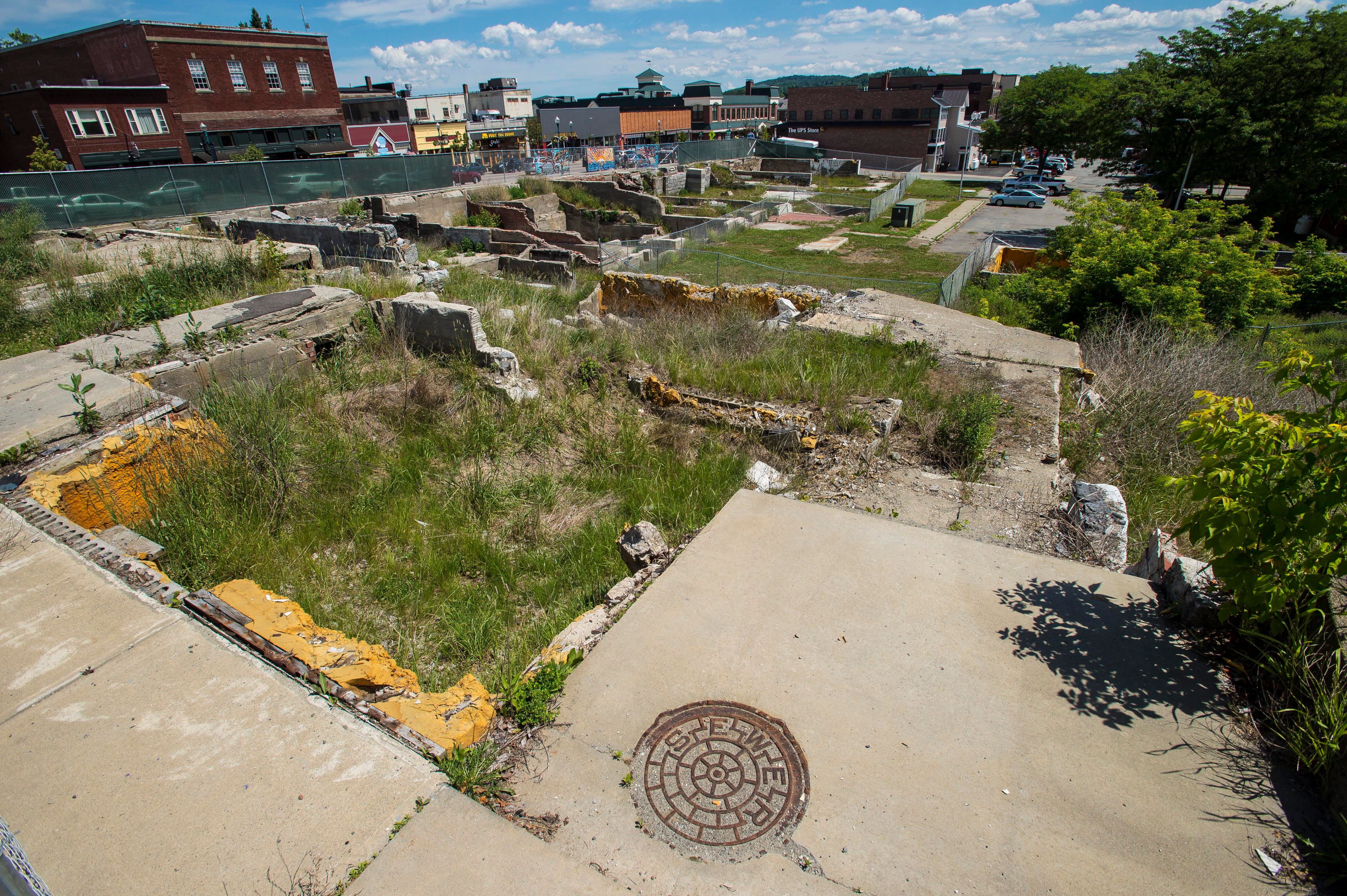As ski season was drawing to a close at Jay Peak, J.J. Toland heard a knock at his door and looked up to see a security officer, who told him to step away from his computer.
“There was a void in my head,” said Toland, who was the ski resort’s communications director. “You want to say, ‘Who are you? By what authority?’ But then you start seeing the guys with Suburbans and dark glasses.”
It was April 13, 2016, and the biggest economic development story in Vermont’s history was about to be exposed as the biggest fraud in the state's history.

The guys with Suburbans and dark glasses were from the Securities and Exchange Commission, and they were there to take control of Jay Peak on the orders of a judge in Miami, along with Burke Mountain and every other property owned by Ariel Quiros. Quiros was home in Florida, where his Miami office was also raided.
Resort patrons were to remain oblivious.
“They shouldn’t see what’s going on,” Miami attorney Jeffrey Schneider, who seized the resorts, said of the skiers and their families. “They would have panicked and left. We didn’t want to interfere with the revenue stream.”
The resorts needed to keep bringing in money if the authorities were to have any hope of recovering what had been stolen. There were also hundreds of jobs to be saved.
Schneider said after about half an hour, employees started asking questions.
“That’s when you see the shock, both in terms of body language and words,” he said. “They ask the obvious question: Am I going to get paid? Am I going to lose my job?”
There was one very important person missing: Bill Stenger, the general manager. It didn’t take long for Schneider to connect with him via cellphone, and for Stenger to pull up in his black Audi sedan with “JayPeak1” tags.
Schneider took Stenger into one of the small conference rooms off the hotel lobby. Schneider placed a box of exhibits from the SEC lawsuit on the table and handed Stenger the complaint and the restraining order. He asked for the keys to the Audi.
For the next hour, Stenger read the documents Schneider had given him.
Stenger read about the investor money that Quiros illegally used to buy Jay Peak, the condos Quiros bought in New York, and the web of bank accounts that were used to obscure the money trail.
“I didn’t know any of this,” Stenger implored Schneider. “I’m shocked.”
“He said that many times,” Schneider remembered.
For many locals, the damage was already done.
Eric Flachbart had made a big bet on Newport. Exciting things were happening, he’d heard, and the small city would be an ideal place to locate his medical device business as he moved north from another Vermont town. He bought Newport’s former Vermont Teddy Bear factory in 2011, investing $1.4 million in the property just as Quiros and Stenger’s grandiosity was reaching its zenith.
“I drank the Kool-Aid,” Flachbart said.
The plan was to use one of the factory buildings for his own business and lease a second building to some other business that would be part of Newport’s boom. Flachbart also bought a large house on picturesque Lake Memphremagog, figuring he could sell it in a few years when AnC Bio executives would be looking for a place to settle down.
“All these great things were going to happen in Newport, so of course all the real estate values would go up,” Flachbart said.
None of his hopes came true. AnC Bio never arrived, and no business ever leased that empty building. Flachbart’s business went belly up in 2016. The bank took all the property, and Flachbart moved to Florida to start again.


Today, the city of Newport has a giant hole in its downtown center — a demolished city block where one of Stenger and Quiros’ unapproved future EB-5 projects was supposed to build new shops, restaurants and offices. City officials added opaque green screening to the chain link fence, but it’s difficult to cover so obvious a failure.
“It’s just a shame,” Flachbart said, “because those two guys just took the town for a ride.”
Quiros and Stenger’s paths have ended in court.
Quiros lost his kingdom when he settled a civil case with the federal government for $85 million; he was required to give up all property except his Florida home as federal and state officials tried to clean up the mess. Some of the funds are earmarked for economic development in the Jay Peak area.
Stenger, who has never been accused of taking money improperly, paid a $75,000 penalty in the federal civil case and $100,000 in a state case. He admitted in the state settlement that he failed to properly supervise EB-5 investor funds, allowing them to be misused and comingled.
Stenger was indicted in criminal court on the same day as his erstwhile friend, along with two other close associates of Quiros, Bill Kelly and Alex Choi.
The group faces fraud charges related to AnC Bio, the biomedical facility they’d promised to build in Newport.
This past summer, Quiros appeared in court over videoconference to plead guilty to three charges: attempt and conspiracy to commit fraud, concealing information about AnC Bio in the government’s investigation of his financial crimes, and using stolen property to pay his tax bill. He is now cooperating with the government.

A trial for Stenger and the two other Quiros associates is tentatively scheduled for April 2021 — but will likely be delayed due to the challenge of holding a complex trial with dozens of witnesses under COVID-19 pandemic restrictions. Quiros’ sentencing will be delayed until after the trial is complete.
Stenger’s defense, according to a filing from his attorney, will seek to demonstrate that Quiros, “the ringleader of the conspiracy,” kept his illegal activities secret from Stenger.
Raymond James settled a lawsuit over its role in the fraud for $150 million. Former Raymond James employee Joel Burstein, Quiros’ former son-in-law, paid $80,000 to the SEC and was ordered not to work for any broker, securities dealer or investment adviser for at least a decade.
As the Jay Peak allegations surfaced in court, politicians of all stripes quickly distanced themselves from the men and the projects they had once heralded.
Vermont had seen $500 million invested in its neediest regions from 1,000 foreign investors, about 700 of them at Jay Peak, Burke Mountain and AnC Bio alone. But no more. After the Jay Peak news came out, the federal government stripped Vermont of its responsibility for the EB-5 program.
The federal program as a whole has been riddled with fraud and tied up in questionable projects in wealthy areas such as the massive Hudson Yards complex in Manhattan. Congress and the Trump administration implemented reforms in 2019.
Though many Jay Peak investors have been able to obtain a green card, they are owed more than $200 million, some portion of which must come from the upcoming sale of Jay Peak and Burke Mountain resorts.
The Northeast Kingdom is still waiting for its share of economic development money from Quiros’ assets. Though purchased in a flurry, they’re taking a long time to sell.
Contact Dan D’Ambrosio at 660-1841 or ddambrosio@freepressmedia.com. Follow him on Twitter @DanDambrosioVT. Contact April McCullum at 802-660-1863 or amccullum@freepressmedia.com. Follow her on Twitter at @April_McCullum.
Note: Changes to the Full-Text RSS free service
"peak" - Google News
December 22, 2020 at 06:00PM
https://ift.tt/2LRTdtM
Reality knocks: Vermont’s biggest economic development story becomes its biggest fraud - USA TODAY
"peak" - Google News
https://ift.tt/2KZvTqs
https://ift.tt/2Ywz40B
Bagikan Berita Ini















0 Response to "Reality knocks: Vermont’s biggest economic development story becomes its biggest fraud - USA TODAY"
Post a Comment